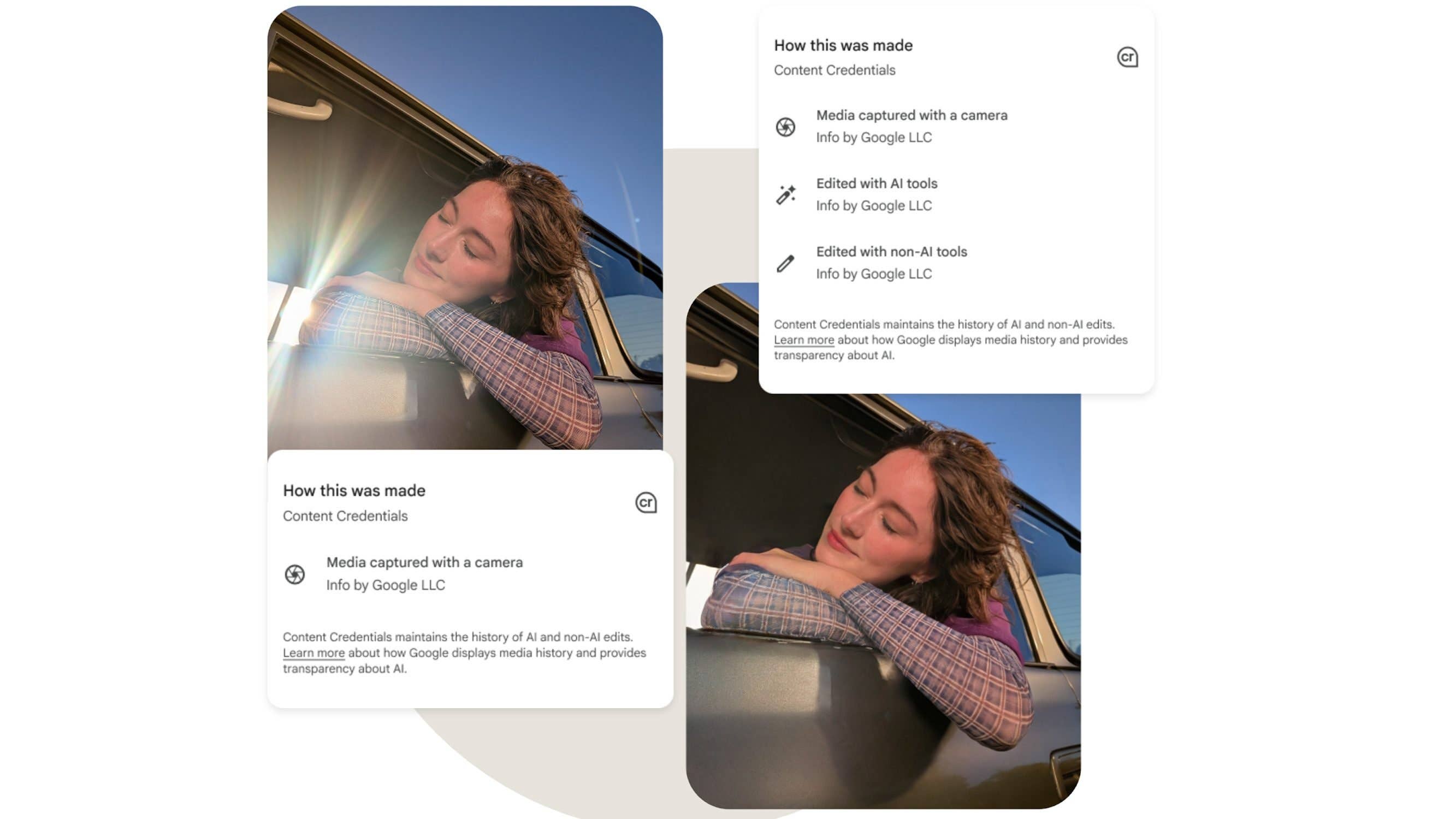The Pixel 10 and Pixel 10 Pro include several AI-powered camera tools, such as Camera Coach. But more than that, those additions are also the first smartphones to support C2PA Content Credentials.
Technically, Content Credentials is an open standard developed by the Coalition for Content Provenance and Authenticity, of which Google is a member after joining last year. These credentials act as secure digital signatures, or can simply be considered as “AI metadata” and apply not only to images but also to videos and audio files.
- Don’t miss: Make ChatGPT look obsolete with this free app
Spotting AI Edits and Origin
Beyond simply identifying whether content is AI-generated, the new standard allows users to check an image’s origin, the type of device used to create it, and whether it has been edited. These insights are especially useful in cases where it’s important to know which AI platform or organization produced the image.
For the Pixel 10 series, this technology is built into the native Pixel Camera app, which embeds credentials into photos taken with the device. These credentials can be viewed in Google Photos through the About panel and even on other devices such as iPhones and Galaxy phones.

Google says Content Credentials in Pixel 10 uses the highest level of security assurance currently available on a smartphone, made possible by the Tensor G5 chip and Titan M2 security module.
The implementation also includes on-device timestamping, which preserves the signature even if a certificate expires. More importantly, verification works offline, and personal data remains secure and protected.
Promoting Responsible AI Use
The addition of Content Credentials to Pixel 10 aligns with Google’s broader push for responsible AI. With Gemini, users can make photo edits without opening traditional editing tools by just using voice prompts.
By embedding transparency into the creative process, Google hopes to reduce the misuse of AI for fraud and misinformation and promote ethical, beneficial applications of the technology.
Google is encouraging other companies to adopt the standard. Content Credentials will soon expand to more devices through Google Photos, including support for iOS.
What do you think of Google’s efforts to help users fight AI abuse? We’d love to hear your thoughts in the comments.


